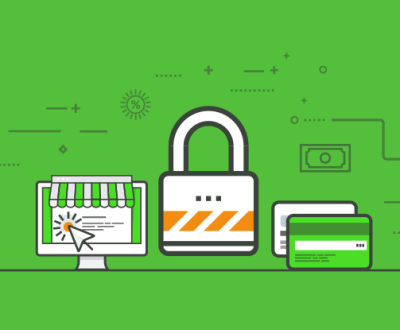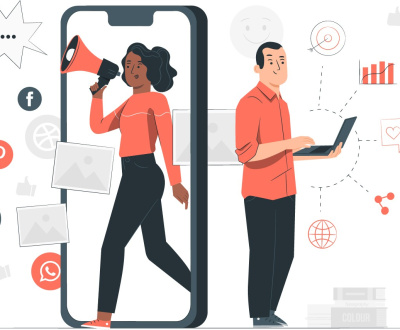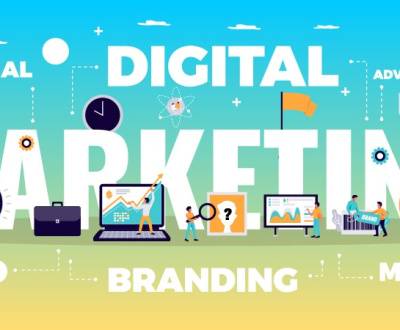A computer-friendly training package typically refers to a set of materials or resources that have been designed and developed with the specific aim of being easily used on a computer or other digital device. This can include a variety of different components, such as:
Basic computer hardware knowledge:
Understanding the basic components of a computer, such as the CPU, RAM, and hard drive, can help you troubleshoot and upgrade your system.
Basic computer hardware knowledge includes knowing the different components that make up a computer, how they work together, and what they do. For example, the CPU is the “brain” of the computer that carries out instructions, while the RAM is the temporary storage area where the computer stores data it’s currently working with. By having a basic understanding of computer hardware, you can troubleshoot problems when they arise, upgrade your system to improve performance, and choose the right components when building a new computer.
Operating system basics:
Knowing how to use your computer’s operating system, whether it’s Windows, macOS, or Linux, can help you customize your experience and solve common problems.
An operating system is the software that manages the computer’s resources and provides a user interface for interacting with the computer. Knowing how to use your operating system can help you customize the settings to your liking, troubleshoot problems when they arise, and take advantage of the many features that the operating system offers. For example, knowing how to create user accounts, manage files and folders, and install and uninstall programs can make your computer usage more efficient and enjoyable.
Basic networking concepts:
Understanding basic networking concepts like IP addresses, routers, and Wi-Fi can help you set up and troubleshoot your home network.
Networking involves connecting two or more devices together to share data and resources. Basic networking concepts include understanding IP addresses, which are unique identifiers for devices on a network, and routers, which are devices that help route data between networks. Knowing how to set up and troubleshoot Wi-Fi networks, including connecting to and securing wireless networks, can also be useful.
Internet and web browsing basics:
Knowing how to use a web browser, search engines, and navigate websites is essential for finding information and conducting online transactions.
The Internet is a global network of connected computers, while a web browser is a software application used to access and navigate the web. Knowing how to use a web browser, including how to use search engines to find information and how to navigate and interact with websites, is essential for finding information, shopping online, and communicating with others online.
Email basics:
Understanding how to create, send, and manage email messages can help you stay organized and communicate more effectively.
Email is a digital communication method used to send and receive messages over the internet. Understanding how to create and send email messages, how to manage your inbox, and how to use email etiquette can help you communicate more effectively and stay organized.
Basic software skills:
Knowing how to use popular software programs like Microsoft Office, Google Drive, or Adobe Creative Suite can make you more productive and efficient.
Software programs are applications that perform specific tasks, such as creating documents or editing photos. Knowing how to use popular software programs can help you be more productive and efficient in your work or personal life. For example, knowing how to use Microsoft Word to create documents, Google Sheets to organize data, or Adobe Photoshop to edit photos can help you complete tasks quickly and accurately.
Cloud computing basics:
Understanding how cloud services work and how to use them can help you store, access, and share files from anywhere.
Cloud computing refers to the delivery of computing services over the internet, including storage, computing power, and applications. Understanding how to use cloud services like Dropbox, Google Drive, or Microsoft OneDrive can help you store and access files from anywhere, collaborate with others, and share files securely.
Basic cybersecurity knowledge:
Knowing how to protect your personal information and devices from online threats like viruses and malware is essential in today’s digital world.
Cybersecurity refers to the protection of computer systems and networks from theft, damage, or unauthorized access. Basic cybersecurity knowledge includes understanding how to create strong passwords, how to identify and avoid phishing scams, how to use antivirus software, and how to secure your home network. By taking basic cybersecurity measures, you can protect your personal information and devices from online threats.
Social media basics:
Knowing how to use popular social media platforms like Facebook, Twitter, and Instagram can help you stay connected with friends and family, promote your business, or build a personal brand.
Social media platforms are websites or apps used for social networking, communication, and content sharing. Knowing how to use popular social media platforms can help you stay connected with friends and family, promote your business or products to a wider audience, or build a personal brand online.
Basic coding skills:
Understanding the basics of programming languages like HTML, CSS, or Python can help you create websites, automate tasks, and solve problems.
Coding involves writing instructions in a programming language to create software applications or automate tasks. Understanding the basics of programming languages like HTML, CSS, or Python can help you create websites, automate repetitive tasks, and solve problems more efficiently.
Basic graphic design skills:
Knowing how to use graphic design tools like Adobe Photoshop or Canva can help you create visually appealing designs for your business or personal projects.
Graphic design involves creating visual content, such as logos, posters, or social media graphics. Knowing how to use graphic design tools like Adobe Photoshop or Canva can help you create visually appealing designs for your business or personal projects, even if you don’t have a background in design.
Basic video editing skills:
Understanding how to use video editing software like Adobe Premiere or iMovie can help you create professional-looking videos for your business or personal projects.
Video editing involves manipulating and rearranging video footage to create a final product. Understanding how to use video editing software like Adobe Premiere or iMovie can help you create professional-looking videos for your business or personal projects, such as promotional videos, instructional videos, or vlogs.
Basic audio editing skills:
Knowing how to use audio editing software like Audacity or Adobe Audition can help you edit and enhance audio recordings for your business or personal projects.
Audio editing involves manipulating and enhancing audio recordings to improve the sound quality or create a final product. Knowing how to use audio editing software like Audacity or Adobe Audition can help you edit and enhance audio recordings for your business or personal projects, such as podcasts or music recordings.
Basic project management skills:
Understanding project management concepts and tools like Gantt charts or Kanban boards can help you plan and execute projects more efficiently.
Project management involves planning, organizing, and executing projects to achieve specific goals. Understanding project management concepts and tools like Gantt charts or Kanban boards can help you plan and execute projects more efficiently, whether you’re working on a personal project or a business project.
Basic data analysis skills:
Knowing how to use spreadsheet software like Microsoft Excel or Google Sheets can help you analyze and visualize data.
Data analysis involves examining and interpreting data to gain insights and make informed decisions. Knowing how to use spreadsheet software like Microsoft Excel or Google Sheets can help you analyze and visualize data, create charts and graphs, and make informed decisions based on the data.
Basic web development skills:
Understanding web development concepts like HTML, CSS, and JavaScript can help you create and maintain websites.
Web development involves creating and maintaining websites using web technologies like HTML, CSS, and JavaScript. Understanding web development concepts and tools can help you create and customize websites to your liking, whether you’re building a personal website or a business website.
Basic mobile app development skills:
Knowing how to use mobile app development tools like Swift or Kotlin can help you create and publish mobile apps for iOS or Android devices.
Mobile app development involves creating and publishing mobile apps for iOS or Android devices using mobile app development tools like Swift or Kotlin. Knowing how to create mobile apps can be a valuable skill, whether you’re developing apps for your business or creating apps for personal projects.
Basic understanding of cloud computing:
Understanding the concept of cloud computing and how to use cloud-based services like Dropbox or Google Drive can help you store and access your files and data from anywhere.
Cloud computing involves using remote servers to store, manage, and process data and applications over the internet. Understanding the concept of cloud computing and how to use cloud-based services like Dropbox or Google Drive can help you store and access your files and data from anywhere, as long as you have an internet connection.
Basic knowledge of artificial intelligence (AI) and machine learning:
Understanding the basics of AI and machine learning can help you stay up-to-date with the latest technological advancements and opportunities.
AI and machine learning involve creating algorithms and computer systems that can learn from data and make decisions or predictions without explicit instructions. Understanding the basics of AI and machine learning can help you stay up-to-date with the latest technological advancements and opportunities, even if you’re not a computer scientist or data analyst.
Basic understanding of blockchain technology:
Knowing the basics of blockchain technology can help you understand how cryptocurrencies like Bitcoin or Ethereum work and the potential applications of blockchain in various industries.
Blockchain technology involves creating decentralized, secure, and transparent digital ledgers that can be used to store and manage data or assets. Knowing the basics of blockchain technology can help you understand how cryptocurrencies like Bitcoin or Ethereum work and the potential applications of blockchain in various industries, such as finance, healthcare, or supply chain management.
In summary, these basic IT skills can help you in various aspects of life, from personal projects to professional development. While you don’t need to master all of them, having a basic understanding of these skills can help you stay up-to-date with the latest technological advancements and opportunities, and make your life easier and more efficient.
Basic understanding of cybersecurity:
Knowing the basics of cybersecurity can help you protect your online identity and data from cyber attacks.
Cybersecurity involves protecting computer systems, networks, and data from unauthorized access, theft, or damage. Knowing the basics of cybersecurity can help you protect your online identity and data from cyber attacks, such as phishing, malware, or hacking.
Basic knowledge of database management:
Understanding how to create, manage, and query databases can help you store and organize your data efficiently.
Database management involves creating and managing databases, which are structured collections of data that can be accessed and manipulated by computer programs. Understanding how to create, manage, and query databases can help you store and organize your data efficiently, whether it’s for personal or professional use.
Basic understanding of networking:
Knowing how computer networks work can help you troubleshoot connectivity issues and optimize your internet performance.
Networking involves connecting computer devices and allowing them to communicate with each other, either within a local area network (LAN) or over the internet. Knowing how computer networks work can help you troubleshoot connectivity issues and optimize your internet performance, whether you’re at home or in a business setting.
Basic knowledge of programming languages:
Understanding the fundamentals of programming languages can help you automate tasks, create scripts, and develop software applications.
Programming languages involve writing instructions or code that computers can understand and execute. Understanding the fundamentals of programming languages can help you automate tasks, create scripts, and develop software applications, even if you’re not a professional programmer.
Basic understanding of user experience (UX) design:
Knowing the basics of UX design can help you create user-friendly websites or applications that meet the needs of your audience.
UX design involves creating websites, applications, or products that are easy to use, intuitive, and satisfying for users. Knowing the basics of UX design can help you create user-friendly websites or applications that meet the needs of your audience, whether you’re designing for personal or professional use.
Basic knowledge of search engine optimization (SEO):
Understanding the basics of SEO can help you optimize your website or content for search engines and increase your online visibility.
SEO involves optimizing website content and structure to improve its visibility and ranking on search engine results pages (SERPs). Understanding the basics of SEO can help you optimize your website or content for search engines and increase your online visibility, whether you’re creating content for personal or professional use.
Basic understanding of data analysis:
Knowing how to collect, clean, and analyze data can help you make informed decisions and solve problems.
Data analysis involves collecting, cleaning, and analyzing data to extract insights and make informed decisions. Knowing how to collect, clean, and analyze data can help you make informed decisions and solve problems, whether it’s for personal or professional use.
Basic knowledge of project management:
Understanding the basics of project management can help you plan, organize, and execute projects effectively.
Project management involves planning, organizing, and executing projects to achieve specific goals within a given time frame and budget. Understanding the basics of project management can help you plan, organize, and execute projects effectively, whether you’re managing a personal project or a team in a professional setting.
Basic understanding of video and audio editing:
Knowing how to edit video or audio content can help you create compelling multimedia content for personal or professional use.
Video and audio editing involve manipulating digital media files to create professional-looking videos or audio content. Knowing how to edit video or audio content can help you create compelling multimedia content for personal or professional use, whether it’s for social media, marketing, or entertainment purposes.
Basic knowledge of e-commerce:
Understanding how to sell products or services online can help you start an online business or sell products through existing e-commerce platforms.
E-commerce involves buying and selling products or services over the internet. Understanding how to sell products or services online can help you start an online business or sell products through existing e-commerce platforms, such as Amazon or Shopify. Basic knowledge of e-commerce can include understanding how to set up an online store, manage inventory, process payments, and fulfill orders. It can also involve understanding e-commerce marketing strategies, such as search engine optimization (SEO), social media marketing, and email marketing.
Basic understanding of cloud computing:
Knowing the basics of cloud computing can help you store and access data and applications remotely, and collaborate with others in real-time.
Cloud computing involves using remote servers to store, manage, and process data and applications, instead of relying on local servers or personal devices. Knowing the basics of cloud computing can help you store and access data and applications remotely, and collaborate with others in real-time, whether you’re working remotely or in a team environment.
Basic knowledge of machine learning:
Understanding the basics of machine learning can help you automate tasks, analyze data, and make predictions based on patterns.
Machine learning involves training computer systems to learn from data and improve their performance over time, without being explicitly programmed. Understanding the basics of machine learning can help you automate tasks, analyze data, and make predictions based on patterns, whether you’re working with large datasets or developing intelligent systems.
Basic understanding of virtual and augmented reality:
Knowing the basics of virtual and augmented reality can help you create immersive digital experiences for gaming, education, or entertainment.
Virtual and augmented reality involve creating immersive digital experiences that allow users to interact with virtual objects or environments. Knowing the basics of virtual and augmented reality can help you create immersive digital experiences for gaming, education, or entertainment, whether you’re a developer, designer, or content creator.
Basic knowledge of graphic design:
Understanding the basics of graphic design can help you create visually appealing content for personal or professional use.
Graphic design involves creating visual content, such as logos, flyers, or social media posts, that communicate a message or brand identity. Understanding the basics of graphic design can help you create visually appealing content for personal or professional use, whether you’re creating marketing materials, social media posts, or personal projects.
Basic understanding of digital marketing:
Knowing the basics of digital marketing can help you promote your brand, products, or services online and reach a wider audience.
Digital marketing involves using digital channels, such as social media, search engines, or email, to promote products, services, or brands. Knowing the basics of digital marketing can help you promote your brand, products, or services online and reach a wider audience, whether you’re an entrepreneur, freelancer, or marketer.
Basic knowledge of artificial intelligence (AI):
Understanding the basics of AI can help you develop intelligent systems, automate tasks, and analyze data more efficiently.
Artificial intelligence involves creating computer systems that can perform tasks that usually require human intelligence, such as learning, reasoning, or problem-solving. Understanding the basics of AI can help you develop intelligent systems, automate tasks, and analyze data more efficiently, whether you’re working in a technical or non-technical field.
Basic understanding of blockchain technology:
Knowing the basics of blockchain technology can help you understand how cryptocurrencies, smart contracts, and decentralized applications work.
Blockchain technology involves creating a decentralized, secure, and transparent ledger that can be used to store and verify transactions or data. Knowing the basics of blockchain technology can help you understand how cryptocurrencies, smart contracts, and decentralized applications work, whether you’re interested in investing in blockchain-based projects or developing blockchain solutions.
Basic knowledge of Internet of Things (IoT):
Understanding the basics of IoT can help you develop connected devices, automate processes, and analyze sensor data.
Internet of Things involves creating devices or systems that are connected to the internet and can communicate with each other to automate processes and collect data. Knowing the basics of IoT can help you develop connected devices, automate processes, and analyze sensor data, whether you’re working in the field of manufacturing, healthcare, or smart homes.
Basic understanding of cybersecurity:
Knowing the basics of cybersecurity can help you protect your personal or professional data from online threats.
Cybersecurity involves protecting digital assets, such as computers, networks, or data, from unauthorized access, theft, or damage. Knowing the basics of cybersecurity can help you protect your personal or professional data from online threats, such as viruses, malware, or phishing attacks.
Basic knowledge of video editing:
Understanding the basics of video editing can help you create professional-looking videos for personal or professional use.
Video editing involves arranging and manipulating video footage to create a final product that communicates a message or tells a story. Understanding the basics of video editing can help you create professional-looking videos for personal or professional use, whether you’re creating content for social media, marketing, or entertainment.
Basic understanding of website development:
Knowing the basics of website development can help you create a website or improve an existing one for personal or professional use.
Website development involves creating and maintaining a website, including designing the layout, writing code, and integrating content. Knowing the basics of website development can help you create a website or improve an existing one for personal or professional use, whether you’re building a portfolio, a blog, or an e-commerce store.
Basic knowledge of content creation:
Understanding the basics of content creation can help you produce high-quality content for personal or professional use.
Content creation involves creating written, visual, or audio content that communicates a message or adds value to a specific audience. Understanding the basics of content creation can help you produce high-quality content for personal or professional use, whether you’re writing blog posts, creating videos, or recording podcasts.
Basic understanding of project management:
Knowing the basics of project management can help you plan, organize, and execute projects more efficiently.
Project management involves managing resources, timelines, and budgets to complete a specific project, such as developing a product or launching a marketing campaign. Knowing the basics of project management can help you plan, organize, and execute projects more efficiently, whether you’re working on a personal or professional project.
Basic knowledge of data analysis:
Understanding the basics of data analysis can help you make informed decisions based on data and improve your problem-solving skills.
Data analysis involves collecting, cleaning, and analyzing data to extract insights and make informed decisions. Understanding the basics of data analysis can help you make informed decisions based on data and improve your problem-solving skills, whether you’re working in a technical or non-technical field.
Basic understanding of digital communication:
Knowing the basics of digital communication can help you communicate effectively with others using digital channels, such as email, social media, or video conferencing.
Digital communication involves using digital channels to communicate with others, whether it’s for personal or professional purposes. Knowing the basics of digital communication can help you communicate effectively with others using digital channels, such as email, social media, or video conferencing, whether you’re working remotely or in a team environment.
About us and this blog
We are a digital marketing company with a focus on helping our customers achieve great results across several key areas.
Request a free quote
We offer professional SEO services that help websites increase their organic search score drastically in order to compete for the highest rankings even when it comes to highly competitive keywords.
Subscribe to our newsletter!
More from our blog
See all postsRecent Posts
- Why students should travel? April 26, 2023
- Most 30 Required Knowledge of Computer for SEE Students April 17, 2023
- Python Programming: A Comprehensive Guide for Beginners and Advanced Users April 16, 2023







